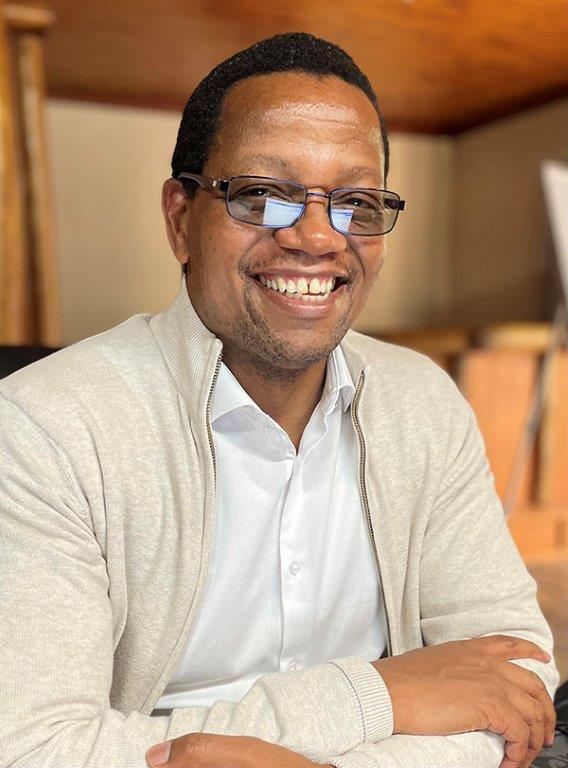Through shared access to advanced cyber infrastructure, South African universities and research and innovation agencies would be in a position to contribute exponentially to the country’s scientific, economic and industrial development. This is the aim of the National Integrated Cyber Infrastructure System (NICIS), which is spearheading efforts in South Africa to develop world-class cyber infrastructure that is locally and globally connected.
One of the North-West University’s researchers has been selected to serve on the NICIS steering committee, a position that will enable him to make valuable contributions in this highly innovative space.
Prof Langa Khumalo, executive director of the South African Centre for Digital Language Resources (SADiLaR), will serve on the committee as an alternate representative of Universities South Africa (USAf) for a three-year term until June 2027.
The purpose of the NICIS steering committee is to give overall guidance and support to the NICIS management and also to assist in promoting electronic science. They will, among others, monitor and assess the operational performance against the NICIS strategy and plans. This includes making recommendations and applying their insights and experience to the work of the committee to ensure objective, unbiased and incisive resolutions.
Three pillars drive the work of the NICIS
Prof Khumalo explains that the NICIS is a very critical system that has three very essential pillars: the Centre for High Performance Computing (CHPC), the South African National Research Network (SANReN) and the Data Intensive Research Initiative of South Africa (DIRISA).
“These three provide a vibrant knowledge-based economic strategy in the areas of scientific innovation and development. I am excited to be part of this steering committee that plays a crucial role in shaping the relevant cyber infrastructure and driving key areas of development.”
He says another important aspect of this is human capacity development. “We must provide strategic leadership in foregrounding training in the right areas, in particular science, technology, engineering and mathematics (STEM), which is vitally important in South Africa.”
The NICIS is an initiative of the Department of Science and Innovation (DSI) and the implementing agent is the Council for Scientific and Industrial Research (CSIR). USAf is a key partner in the initiative.
Prof Khumalo credits SADiLaR
Prof Khumalo’s appointment to the NICIS committee is testament to the high level of strategic interaction that SADiLaR has had with USAf. SADiLaR, which the NWU hosts, develops language technologies for all official South African languages and is also an initiative of the DSI.
“SADiLAR conducted a nationwide survey of the key digital resources that existed at all 26 public universities. The whole coordination was driven by USAf who provided SADiLaR key access to all the local universities. Through the Community of Practice for the Teaching and Learning of African Languages (CoPAL), we managed to conduct a comprehensive language audit in order to get a sense of the infrastructure that is available to support the newly promulgated language policy for higher education.”
He believes this close partnership and collaboration, as well as the successful launch of the language audit, informed USAf’s decision to nominate him for the steering committee.
“It is a symbiotic relationship. Although it is a great honour to be chosen for this committee, it also in turn provides SADiLaR with access to the national cyber infrastructure system that we need to disseminate the digital resources that SADiLaR puts together. I am excited about all the new avenues this will open,” he concludes.

Prof Langa Khumalo is also currently serving on the Department of Higher Education and Training’s advisory panel. His extensive knowledge of language policy and planning has led to his participation and membership of various organisations. These include the African Academy of Languages and the Scientific Board of the Centre for Advanced Studies of African Society, among others. He is also the chair and coordinator of the Africa Union (AU) IsiZulu Language Commission and president of the African Association of Lexicography.
